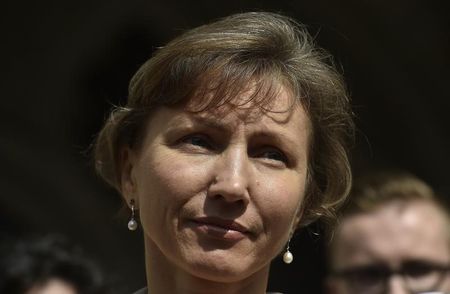LONDON (Reuters) - Britain's public inquiry next year into the 2006 murder of former KGB spy Alexander Litvinenko should not be broadcast because witnesses could face reprisals from Russia, the lawyer representing London's police force said on Friday.
Kremlin critic Litvinenko, 43, died after being poisoned with a radioactive isotope slipped into a cup of tea in a plush London hotel, a crime which from his death bed he blamed on Russian President Vladimir Putin.
Russia has repeatedly denied any involvement but Robert Owen, chairman of the inquiry which British ministers in July finally agreed to hold, has said the government had material which indicated the Kremlin was responsible.
"This was a highly organised and shocking execution and you have found prima facie evidence of Russian state involvement," Richard Horwell, the Metropolitan Police's lawyer told Owen as he argued broadcasting the inquiry live over the internet when it begins in earnest in January would discourage witnesses.
"No one can suggest it's fanciful for a witness in this of all hearings to be concerned about reprisal or revenge in whatever form from Russia."
He was backed by the British government's lawyer Neil Garnham who said there was also the potential to damage national security through the deliberate or inadvertent disclosure of restricted material.
"This is far from an easy question to resolve," said Owen who has previously indicated he wanted the much-anticipated inquiry to be as open as possible.
Anglo-Russian ties fell to a post-Cold War low after Litvinenko's death, particularly after British prosecutors said there was enough evidence to charge former KGB agents Andrei Lugovoy and Dmitry Kovtun with murder.

Despite a thawing in relations when David Cameron became prime minister in 2010, the recent crisis in Ukraine has once again led to antagonism.
(Reporting by Michael Holden)
